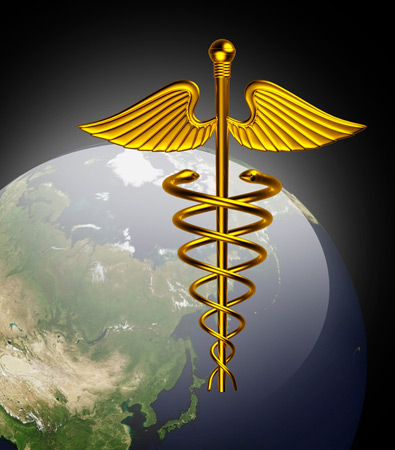Health and Medical: Health Care System
Medical care in China is uneven, ranging from poor in remote areas to excellent at international medical facilities run by and catering to expatriates. Such facilities exist in Beijing, Shanghai, Guangzhou, and a few other large cities; they operate at Western European standards.
Many other hospitals in major Chinese cities have so-called VIP wards (gaogan bingfang). These feature reasonably up-to-date laboratory and imaging facilities. The physicians in these centers are generally well trained. Most VIP wards also provide medical services to foreigners and have English-speaking doctors and nurses.
Ambulances often do not carry sophisticated medical equipment. Injured or seriously ill foreign citizens may be required to take taxis or other immediately available vehicles to the nearest major hospital rather than waiting for ambulances to arrive.
International SOS operates modern medical and dental clinics and provides medical evacuation and medical escort services in Beijing, Nanjing, Tianjin, and Shekou, as well as 24-hour Alarm Centers in Beijing and Hong Kong. Through its clinics in Beijing (24 hours), Tianjin, Nanjing, and Shekou, International SOS offers international-standard family practice services, emergency medical services and a range of clinical services, though these can be expensive.
For medical emergencies anywhere in mainland China, foreigners can call the International SOS 24-hour "Alarm Center" in Beijing at telephone: (86) (10) 6462-9100 for advice and referrals to local facilities. For a full list of International SOS locations and phone numbers, consult the SOS website at www.internationalsos.com.
Most hospitals in China will not accept medical insurance from other countries, with the exception of the following hospitals, which are on the Blue Cross Blue Shield's worldwide network providers—overseas network hospitals list:
- Hong Kong Adventist Hospital
- Beijing United Family Hospital
- Beijing Friendship Hospital
- International Medical Center in Beijing
- Peking Union Medical Center
- Shanghai United Family Hospital
Cash payment for services is often demanded before a patient is seen and treated, even in cases of emergency. Travelers will be asked to post a deposit prior to admission to cover the expected cost of treatment. Hospitals in major cities may accept credit cards for payment. Even in the VIP/foreigner wards of major hospitals, however, foreign patients have frequently encountered difficulty due to cultural, language, and regulatory differences. Physicians and hospitals have sometimes refused to supply foreign patients with complete copies of their Chinese hospital medical records, including laboratory test results, scans, and x-rays.
Generally, in rural areas, only rudimentary medical facilities are available, often with poorly trained medical personnel who have little medical equipment and medications. Rural clinics are often reluctant to accept responsibility for treating foreigners, even in emergency situations.
Visitors who elect to have surgery or other medical services performed in China should be aware that there is little legal recourse to protect consumers in cases involving medical malpractice.
Medications in common use elsewhere are frequently unavailable in China; furthermore, medications that bear the same name as prescription drugs from other countries are not always the same. Visitors carrying prescription medication into China for personal use should carry their prescriptions from their doctors.
Locating a Doctor
Embassies and consulates generally maintain lists of physicians, dentists, and medical facilities for the benefit of travelers. Also, the International Association for Medical Assistance to Travelers (IAMAT) maintains a database of fully licensed, English-speaking doctors around the world. Office visits are available to IAMAT members at fixed rates advertised on the website, www.iamat.org.
Source: US Department of State
World Trade Press accepts no liability for statements on this page. Consult your healthcare provider for more information.
Copyright © 1993—2025 World Trade Press. All rights reserved.

 China
China 
